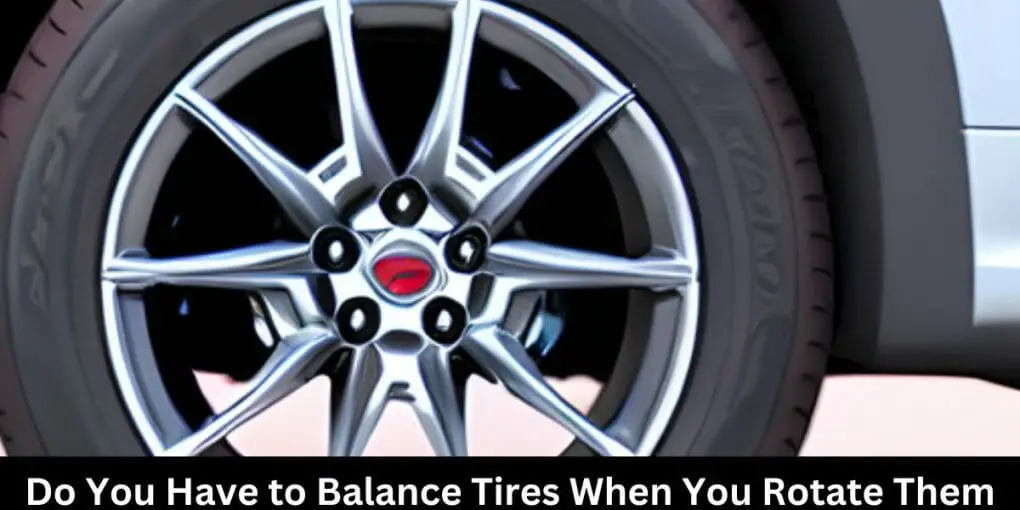Do You Have to Balance Tires When You Rotate Them
Most people believe that when you rotate your tires, you must also balance them. This is not always the case. Depending on the type of vehicle you drive, and how often you rotate your tires, balancing may not be necessary
However, there are some cases where it is necessary to balance your tires after rotation.
If you have a car, you have to rotate your tires. It’s just something that comes with owning a vehicle. But do you have to balance them when you rotate them
The answer is no. You don’t have to balance your tires when you rotate them. However, it is recommended. Balancing your tires helps ensure even wear and tear on all of your tires
Plus, it can help improve your gas mileage. So, while you don’t have to balance your tires when you rotate them, it is something that is worth doing. It will help extend the life of your tires and could save you money in the long run.
Tire Balance & Rotation
Do You Have to Balance Tires When You Rotate Them
Most people believe that when you rotate your tires, you must also balance them. However, this is not always the case. If your tires are in good condition and have been properly balanced before, then you likely will not need to balance them again during a rotation
It is important to ask your mechanic or tire professional if balancing is necessary before rotating your tires.
How Often Should You Rotate Your Tires
It is important to rotate your tires regularly in order to extend their life and keep your car running smoothly. Depending on your vehicle, you may need to rotate them every 5,000-8,000 miles. Check your owner’s manual or ask a mechanic to be sure.
What are the Benefits of Rotating Your Tires
Most people are aware that rotating their tires is important, but many don’t know why. Here are the benefits of rotated tires:
1. One of the main reasons to rotate your tires is to ensure even wear. Over time, your tires will naturally suffer from uneven wear due to things like driving habits and terrain. By rotating them, you can help ensure that they all wear down at approximately the same rate.
2. Improved gas mileage Another benefit of having uniformly worn tires is the improved gas mileage. When your tire treads are worn down, it causes drag on the road, which requires more fuel to maintain your speed.
3. Better traction and handling Unevenly worn tires can also negatively impact your vehicle’s traction and handling ability. This is because the bald spots have less grip on the road surface than areas with thicker treads. In extreme cases, it can cause hydroplaning – when your car essentially skims across a puddle of water because there’s no contact between the tire and the road surface.
4 . Longer-lasting tires
If I Rotate My Tires, Do I Need an Alignment
There are a lot of misconceptions out there about car maintenance, and one of the most common is that rotating your tires will automatically mean you need an alignment. This simply isn’t true! While it’s possible that your car might need an alignment after you rotate the tires, it’s not a guarantee
Here’s what you need to know about rotations and alignments: Most mechanics recommend that you rotate your tires every 5,000 miles or so. This helps to ensure even wear on all four tires, which can help extend their lifespan
When you rotate the tires, it’s important to check the air pressure in each one and adjust as needed. It’s possible that your car could start to pull to one side after a tire rotation. If this happens, it doesn’t necessarily mean that you need an alignment
However, it’s always best to get a professional opinion just to be sure. They’ll be able to tell for sure if an alignment is necessary. In general, you shouldn’t have to get an alignment every time you rotate your tires
However, if you notice that your car starts pulling or seems off balance, it’s definitely something worth getting checked out!
How Long Does It Take to Balance Tires
The process of balancing a tire is important in order to extend the life of the tire and ensure a smooth ride. Many factors can affect how long it takes to balance a tire, including the size and weight of the tire, as well as the type of vehicle. The average time it takes to balance a tire is between 30 minutes and an hour.
How Often Should You Balance Your Tires
Assuming you have a standard passenger vehicle, you should check your tire pressure at least once a month and inflate them to the manufacturer’s recommended PSI. You should also perform a visual inspection of your tires to look for any signs of damage, such as cracks or bulges in the sidewall. Once every few months, it’s a good idea to remove each wheel and inspect the brake pads and rotors
As for actually balancing your tires, most mechanics recommend doing it every 5,000 miles or so. This helps to ensure even wear on all four tires and prevents any one tire from carrying more weight than the others. Balancing your tires is relatively inexpensive and can be done quickly at most auto shops.
Conclusion
No, you don’t have to balance the tires when you rotate them. However, it’s a good idea to do so if your tires are unbalanced. Balancing tires can prolong their life and improve their performance.


